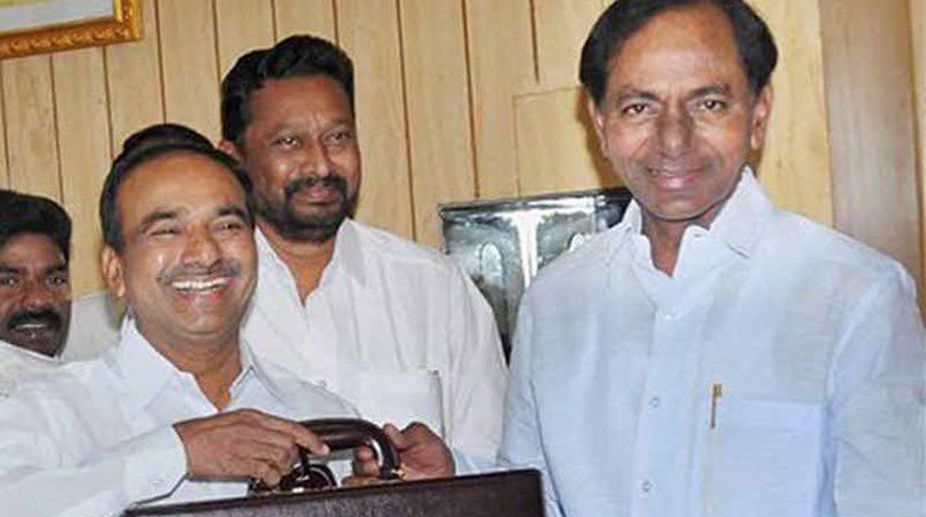A vote for BJP will ensure Tripura’s prosperity: PM to Agartala electorate
Modi claimed that the North East policy of the Congress and the Communists was a Loot East policy, which the BJP buried 10 years back and initiated an Act East Policy.

Kalvakuntla Chandrasekhara Rao (Photo: Twitter)
The Hyderabad Metro Rail (HMR) project is expected to be operational in November on the 30-km-long stretch out of the 72-km elevated project here.
The project, which started in July 2012, was initially scheduled to be completed by June this year (in all three corridors), but delays like land acquisition and other issues resulted in the project overshooting the deadline.
Last week in the board meeting of HMR, its Managing Director NVS Reddy explained the fast paced progress of the Metro rail works on the 30-km stretch, from Miyapur-Ameerpet(13 km) of corridor-I and Ameerpet-Nagole (17 km) of corridor-III, which are proposed for opening in the last week of November this year.
Advertisement
Reddy, who is personally monitoring the progress of all the works, assured the board that the works on these two stretches will be completed by October 15 and the trial run of trains will commence thereafter.
He said the Commissioner of Metro Rail Safety (CMRS) could then be invited for safety certification of the Metro rail system between Miyapur-Ameerpet and Ameerpet-Nagole in the first week of November.
“After inspection (of the two stretches), the CMRS nod should not take much time,” an official of the HMR said.
Telangana Chief Minister K Chandrasekhar Rao has invited Prime Minister Narendra Modi to inaugurate the first phase of the Metro rail project, as the PM is likely to be in the city to attend the Global Entrepreneurship Summit from November 28 to 30.
State municipal administration minister K T Rama Rao last week said the Prime Minister’s Office has not yet given a confirmation on the inauguration date.
According to Reddy, “The project, once completed, will transform the city into one of the most preferred global cities, boosting economic growth and attracting investments, jobs and talent, and contributing to the vision of the chief minister.”
The Metro rail stations will be equipped with electric vehicles for feeder trips, carpool and short trips.
An adequate network of electric vehicle stations will be made available at the Metro rail stations with facilities for charging the vehicles, and replacing used batteries with recharged batteries, Reddy said.
The electric vehicles and feeder buses will ply from the inner residential areas to the Metro stations and will discourage use of personal vehicles for decongestion of the roads, he said.
Advertisement